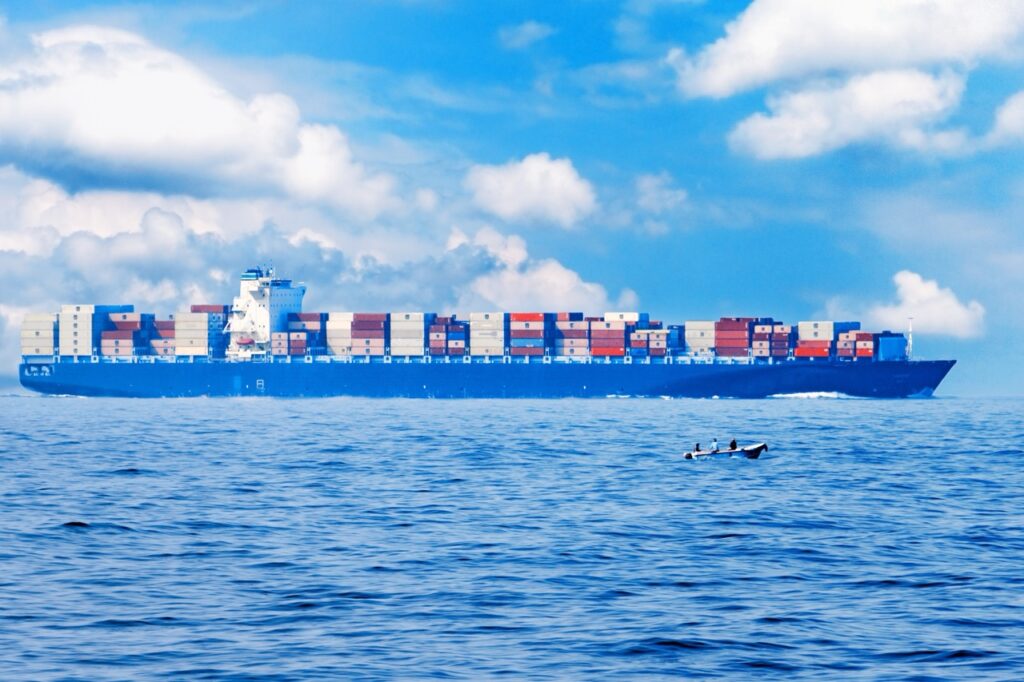How Ocean Shipments Are Impacting the Trucking Industry

In April 2024, the trucking industry finds itself intricately linked to the dynamics of global trade, with ocean shipments playing a pivotal role in shaping its operations. As the backbone of the supply chain, trucking companies are not only affected by the volume of goods arriving at ports but also by the efficiency and reliability of ocean freight transportation. In this blog post, we’ll explore how ocean shipments are influencing the trucking industry in April 2024 and the strategies trucking companies can employ to adapt to these dynamics.
Increased Demand and Congestion:
One of the primary ways ocean shipments impact the trucking industry is through changes in demand and congestion at ports. In April 2024, rising consumer demand and shifts in trade patterns may lead to increased volumes of goods arriving at ports, putting pressure on trucking companies to handle higher volumes of containers and goods. Managing congestion effectively requires robust logistics planning, optimized routes, and clear communication between trucking companies and port authorities.
Last-Mile Delivery Challenges:
Ocean shipments often represent just one leg of the journey for goods in the supply chain, with trucking companies responsible for transporting containers from ports to their final destinations. Last-mile delivery challenges may arise due to factors such as limited trucking capacity, urban congestion, and labor shortages. Trucking companies must prioritize efficiency and flexibility in their operations to overcome these challenges and meet customer expectations for timely delivery.
Supply Chain Disruptions:
Disruptions in ocean shipments, whether due to weather events, geopolitical tensions, or infrastructure issues, can have cascading effects on the trucking industry. Trucking companies may experience delays, rerouted shipments, or sudden changes in cargo volumes as a result of unforeseen disruptions in ocean transportation. To mitigate the impact of supply chain disruptions, trucking companies should maintain open lines of communication with shipping partners, diversify transportation routes where possible, and implement contingency plans to address unexpected challenges.
Fuel and Operating Costs:
The cost of transporting goods via ocean shipments can influence the trucking industry’s operating costs. Fluctuations in fuel prices, port fees, and surcharges imposed by shipping lines can directly impact the profitability of trucking companies. To manage cost pressures effectively, trucking companies may need to adjust pricing strategies, optimize fuel efficiency measures, and seek opportunities for collaboration and consolidation to achieve economies of scale.
Opportunities for Collaboration and Innovation:
Despite the challenges posed by ocean shipments, April also presents opportunities for collaboration and innovation within the trucking industry. By forging strategic partnerships with shipping lines, logistics providers, and technology companies, trucking companies can access new markets, streamline operations, and drive efficiency throughout the supply chain. Embracing technological advancements such as block chain, IoT, and predictive analytics can also empower trucking companies to make data-driven decisions and enhance visibility and transparency in their operations.
In April, the interconnectivity of global trade underscores the significant influence ocean shipments have on the operations and economics of the trucking industry. Understanding the complexities of ocean freight transportation, anticipating challenges, and fostering collaboration and innovation are pivotal for trucking companies to adapt to the evolving dynamics of the supply chain. Partnering with Single Point Logistics enhances this adaptability, providing invaluable support and expertise to navigate logistical complexities and ensure sustainable growth.
